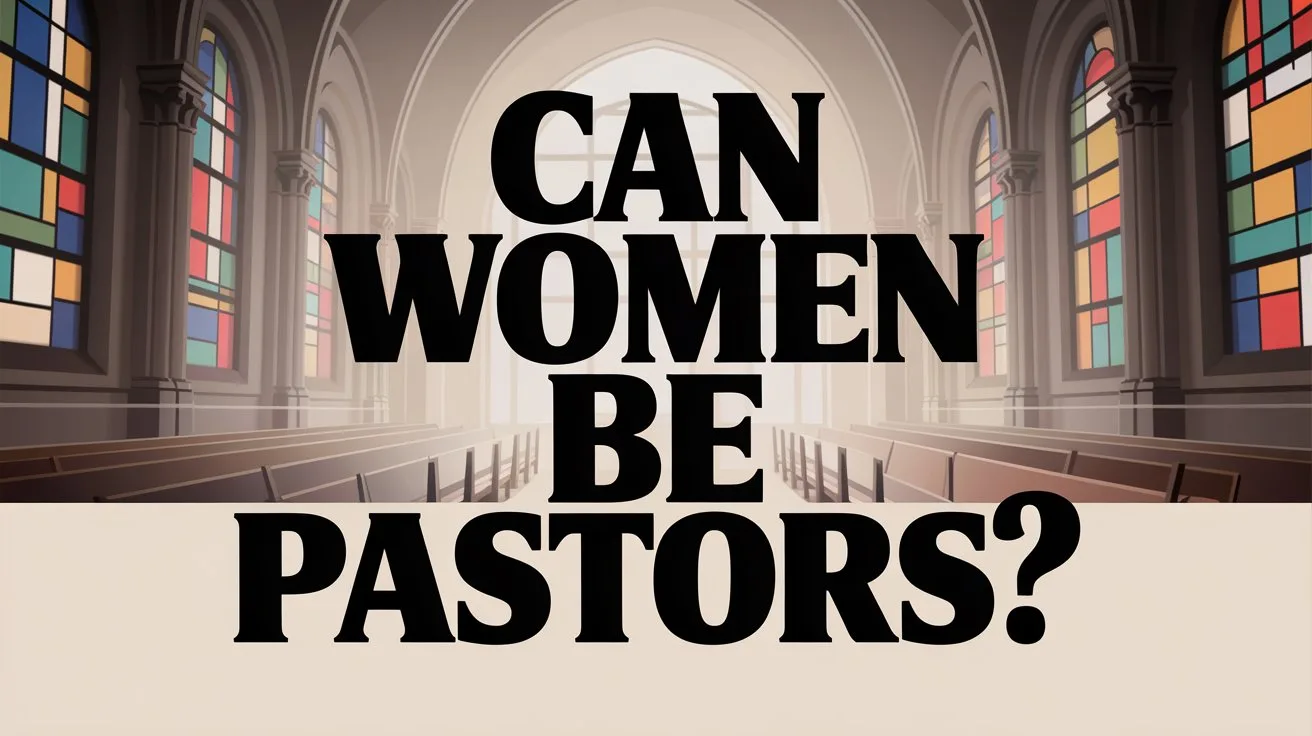To begin, the pastoral office is not simply a role—it is a divinely ordained position of spiritual authority within the body of Christ. The structure of leadership in the church is directly tied to the order of creation and God’s design for authority.
In 1 Timothy 2:11–15, Paul writes:
“Let a woman learn in silence with all submission. And I do not permit a woman to teach or to have authority over a man, but to be in silence. For Adam was formed first, then Eve. And Adam was not deceived, but the woman being deceived, fell into transgression.”
This is not cultural. Paul grounds his command in the created order, not the Ephesian context. Adam was formed first: that’s order. Eve was deceived: that’s function. Paul is not forbidding women from learning, but he is forbidding them from teaching with authority over men, which is exactly what the office of pastor entails.
The Role of Elders/Pastors Defined
In 1 Timothy 3:1–7, Paul gives the qualifications for a bishop (episkopos), which is used interchangeably with pastor (poimēn) and elder (presbyteros):
“A bishop then must be blameless, the husband of one wife… one who rules his own house well, having his children in submission with all reverence… not a novice… moreover he must have a good testimony among those who are outside.”
This office is clearly designated for a man. The text says, “the husband of one wife,” not “spouse of one partner.” The qualifications include household leadership, spiritual maturity, and authority (all of which tie into the same masculine order established in 1 Timothy 2). Titus 1:5–9 repeats this with emphasis:
“If a man is blameless, the husband of one wife, having faithful children… for a bishop must be blameless, as a steward of God…”
Paul specifically left Titus in Crete to “set in order the things that are lacking” and “appoint elders in every city,” always describing these elders as men.
The Example of Christ and the Apostles
Jesus Christ, who perfectly loved and honored women, did not choose a single female among the twelve apostles. He had many faithful female disciples (Mary Magdalene, Joanna, Susanna (Luke 8:1–3)) but not one of them was appointed to the apostolic office.
The apostles continued this example in the early church. Not one woman was ever appointed as an elder, pastor, or apostle in the New Testament record. In Acts 6, when the church needed deacons, the apostles said,
“Seek out from among you seven men of good reputation…” (Acts 6:3).
Does Galatians 3:28 Remove Gender Distinctions?
Some will cite Galatians 3:28:
“There is neither Jew nor Greek, there is neither slave nor free, there is neither male nor female; for you are all one in Christ Jesus.”
But this speaks to our unity and equality in salvation, not to our distinct roles in the home or church. Equality in value does not mean sameness in function. A husband and wife are equal before God but serve different roles in marriage (Ephesians 5:22–33), just as in the church.
What About Prophetesses and Women in Ministry?
Yes, there were prophetesses: Miriam (Exodus 15:20), Deborah (Judges 4), Huldah (2 Kings 22), Anna (Luke 2:36), and Philip’s daughters (Acts 21:9). But none of these held pastoral authority. Deborah judged Israel in a time of apostasy when no men would rise up. She even rebuked Barak for not leading (Judges 4:9). That was an exception, not a model.
Women may prophesy (1 Corinthians 11:5) and serve in many ways, but they are not permitted to teach or have authority over men in the assembly. God is not the author of confusion; He has set His order. 1 Corinthians 14:34–35 adds:
“Let your women keep silent in the churches, for they are not permitted to speak; but they are to be submissive, as the law also says… for it is shameful for women to speak in church.”
This is not a prohibition of all speaking (as in singing, praying, or testifying), but of authoritative teaching and ruling within the gathered church body.
My Final Thoughts
The question of women pastors is not about gifting; it is about God’s design. Women are gifted, called, and vital to the church. But pastoring is a position of authority that God, in His perfect order, has reserved for men who meet His qualifications.
This is not about preference; it is about obedience. God’s Word has spoken. And when the church obeys, it flourishes. When it compromises, it falls into confusion. Let every man and woman find joy in the roles God has given, and let us build the church according to the blueprint of Scripture, not the winds of culture.





 Get the book that teaches you how to evangelize and disarm doctrines from every single major cult group today.
Get the book that teaches you how to evangelize and disarm doctrines from every single major cult group today.